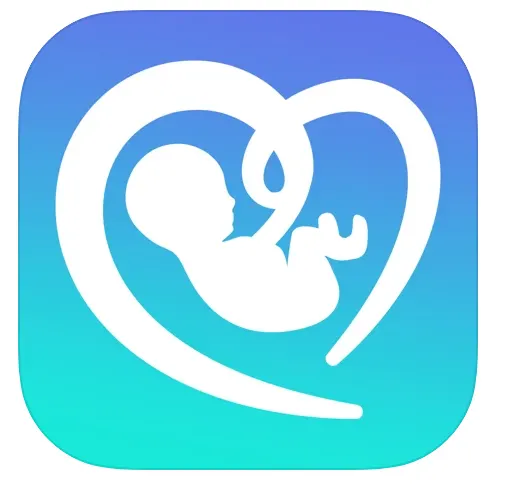
You can have many questions about your child’s growth as a new parent. “When Can A Fetus Hear?” is one of the most often asked questions. It’s a good question, but the response is more complicated than you may imagine. This blog article will examine the science underlying infant hearing development and offer some advice on how to encourage your child’s listening abilities.
Related: Which Type of Bottle is Best for a Baby?
What Is Hearing?
Let’s first explain what hearing is so that we can discuss when babies can hear. Hearing is just the capacity to perceive sound. To interpret the sound waves that humans hear as sound, the brain and ears must cooperate.
Related: 16 Causes of Pelvic Pain During Pregnancy and How to Get Relief?
How Do Babies Hear?
Let’s examine how babies hear in more detail now that we understand what hearing is. A sound wave moves from the outside of the ear into the middle ear as it enters the ear. Three tiny bones (the hammer, anvil, and stirrup) are vibrated there by the sound wave, which also causes the eardrum to vibrate. These bones amplify the sound and transmit it to the inner ear, where it stimulates hair cells to produce electrical impulses from the sound. The brain receives these impulses and interprets them as sound.
Related: Making Love, Not War: 10 Comfortable Pregnancy Sex Positions
Importance of Early Communication with Babies
You are your child’s first teacher as a parent. Your unborn child is already learning and growing at a rapid rate. Maintaining open lines of communication with your child as early as frequently as you can is one of the most crucial things you can do for their development.
Early exposure to language and sounds increases a baby’s likelihood of later developing great language abilities. Infants who are spoken to regularly have greater vocabularies and are more adept at understanding and using language than those who are not.
Related: How Big is My Baby Now?
Connection Between Hearing and Language Development
Language development is critically influenced by hearing. Babies can identify the sound of their mother’s voice as soon as they are born. In fact, just hours after birth, babies can tell the difference between their mother’s voice and a stranger’s voice.
Babies get better at hearing and identifying noises as they mature and develop. By the time they are a few months old, babies are able to identify noises that are known to them, such their own name or the sound of a beloved toy. Their acquisition of language has only begun.
When Can A Fetus Hear?
Although the inner ear structures start to form approximately 10 weeks into pregnancy, hearing does not develop until all the structures are virtually linked to the brain. According to the response to sonic vibration, some experts estimate that some fetuses may have the ability to hear as early as 14 weeks. But most well referenced studies on embryonic hearing indicated that babies begin hearing in the womb at about 19 weeks of gestation. In particular, noises in the 500 Hz range, which are on the lower end of what adults can hear, cause a response in fetuses. By 33 weeks of gestation, newborns respond to frequencies between 250 and 3000 Hz. As the ear structure grows, the acoustic range expands.
Fetal Hearing Development: A Timeline
| Weeks of Pregnancy | Hearing Development |
| 4-5 | The embryo’s cells begin to arrange themselves to form the baby’s face, brain, nose, ears, and eyes. |
| 9 | Where the baby’s ear will develop, indentations can be seen. |
| 18 | Baby begins to pick up sounds. |
| 24 | Baby’s hearing is more sensitive. |
| 25-26 | Baby reacts to sounds and voices when in the womb. |
Newborn Hearing Screening
Most newborns undergo hearing loss screening shortly after delivery. This is crucial since a child’s language development and general development might be impacted by hearing loss. Newborn hearing screening tests come in two different types:
Otoacoustic Emissions (OAE) Test
In reaction to noises played into the ear, the cochlea (inner ear) produces sounds that are measured by this test. A tiny probe can detect an emission from the cochlea if it is functioning properly.
Auditory Brainstem Response (ABR) Test
In this test, the electrical response of the brainstem and auditory nerve to sounds played into the ear is measured. It is capable of identifying even mild hearing loss.
When to Get Your Baby Screened?
Before leaving the hospital or within the first few weeks of life, newborns often have their hearing checked. If your child is not screened or fails the exam, additional testing will be required to determine whether they have hearing loss.
What to Do if Your Baby Fails the Screening?
Do not become alarmed if your baby’s hearing test is negative. Your child may not actually have a hearing impairment. When a baby fails the screening, it may be due to ear fluid or because they were fussy too much.
If your baby’s initial screening is negative, your doctor will advise more testing. This can entail a more thorough hearing assessment, such an ABR test, or a specialist referral.
What Does It Sound Like In The Womb?
The womb is noisy. The auditory system of the fetus will be exposed to a variety of sounds while it grows inside the mother’s body. These include the sound of the heartbeat and the sounds made by the blood flowing and the digestive process.
The fetus will also be able to hear sounds coming from outside the womb around the 23rd week of pregnancy. Speech and music are examples of this. All the sounds will get louder and clearer as the fetus grows.
Noises from outside the body will be muffled since the developing baby is surrounded by amniotic fluid and the tissues of the mother.
What To Say To Your Baby In The Womb?
The key lesson here is that babies need to learn to listen even before they are born. But just because you read Shakespeare to your partner’s growing kid doesn’t imply you’ll transform them become geniuses. However, it does imply that parents should speak to their unborn child while they are still in the womb. Infants will retain the tones and rhythms they hear.
Babies can’t help but hear their mother’s voice. After all, they always have the voice with them. For dads, though, that may not always be the case. Therefore, fathers should spend time talking to their unborn offspring in order to participate in embryonic learning. Reading aloud, telling them about your day, or simply thinking aloud are all examples of this.
Fathers might add points by instituting a bedtime reading ritual. It’s likely that once they are born, hearing dad read the same story will help the infant unwind and feel comforted, thus making bedtimes easier in the future.
Related: Talking To Baby In The Womb During Pregnancy
What Babies Hear When You Sing to Them?
When you sing to babies, they can pick up on the melody, rhythm, and tone of your voice. Babies can recognize and react to sound, including the sound of their mother’s voice, even before they are born.
A baby may react to singing by kicking their legs, waving their arms, or focusing on the source of the sound. This may indicate that they are engaging with and appreciating the music.
According to research, singing to infants can have a variety of advantages, such as fostering parent-child relationships, supporting language development, and calming and soothing the baby.
What is the Spirutual Meaning of Hearing a Baby Cry?
Depending on the situation and the person’s beliefs, hearing a baby cry can have many meanings in spiritual and mystical beliefs.
Hearing a baby cry may be seen by some as a sign of new beginnings, growth, or the emergence of new ideas or projects. Others might interpret it as a representation of helplessness, innocence, and the need for fostering or safeguarding.
If anything is out of balance or a challenging task or change is coming, hearing a baby cry may also be seen in some spiritual traditions as a message or warning from the spiritual realm.
In the end, the interpretation and personal beliefs of the individual, as well as the setting and circumstances surrounding the experience, can all influence the meaning of hearing a baby cry in a spiritual context.
During Pregnancy, How To Support Your Unborn Child’s Hearing?
You can do the following to safeguard your baby’s hearing:
Talk to Your Baby
They can hear your voice even before they are born. Talk to them! Tell your child about your day, sing to them, and engage in dialogue. This will strengthen your relationship with them and aid in their language learning.
Play Music
The idea that listening to music while your kid is still inside you will make them smarter is unfounded. However, research indicates that listening to music (together with adults talking and other environmental sounds) can help your infant develop their hearing, memory, and emotions. Make sure the music isn’t too loud to safeguard your baby’s sensitive ears. Never put earbuds or headphones directly on your abdomen since the sound will increase dangerously when it reaches your unborn child.
Use Toys
There are many products on the market that are intended to aid in the development of a baby’s listening abilities. Search for toys that your baby can investigate that have various sounds or textures.
Read Books
Reading to your baby is a wonderful method to develop their listening skills as well as to strengthen your relationship with them. Pick picture books for your infant that have clear language and vibrant illustrations.
Avoid Loud, Continuous Noise
There is some proof that your baby’s hearing can be harmed by long-term exposure to extremely loud noise, such as 8 hours a day, every day. While pregnant, some experts advise staying away from any everyday noise that is louder than 115 decibels, or roughly the volume of a chainsaw. Avoid as much as you can any noises that are louder than that, such a rock concert or a firing range. Even if you are using hearing protection, the sound can still enter your body and reach your baby’s ears. Ask your employer whether you can work in a quieter setting throughout your pregnancy if you normally work in a loud area (such as around noisy machinery or at loud events).
Use Medicine with Caution
Babies’ hearing loss has been linked to the use of specific medications during pregnancy, particularly several antibiotics. Inform all of your medical professionals—including your dentist—that you are pregnant, and see your doctor or midwife to confirm that you are taking pregnancy-safe drugs.
Eat Fish that is Mercury-Free
While fish is full of beneficial omega-3 fatty acids that support your baby’s brain development, some varieties also have high mercury levels, which have been linked to birth abnormalities like hearing loss. The U.S. Food and Drug Administration that pregnant women consume 8 to 12 ounces of low-mercury fish per week to balance these risks and benefits. Eat a range of fish that are safe to eat (including salmon, cod, shrimp, and tilapia) and stay away from the four fish species with the highest mercury concentrations: swordfish, tilefish, shark, and king mackerel.
Avoid Consuming Alcohol
Fetal alcohol spectrum disorders are a range of birth problems that can be brought on by drinking during pregnancy (FASDs). Hearing loss and communication difficulties are common in children with FASD. It is preferable to stay on the safe side and steer clear of alcohol altogether because no one is sure how much alcohol it takes to develop the disease.
Related: Should You Drink Alcohol during Pregnancy?
Are there any Apps to Hear Baby’s Heartbeat?
Numerous apps that claim to let you hear your baby’s heartbeat at home are available for both iOS and Android devices. It’s crucial to remember that these apps shouldn’t be used in place of expert medical guidance or treatment.
Popular apps that purport to let you hear your child’s heartbeat include:
Bellabeat Shell

Bellabeat by Shell is first on the list since I use it the most. On the Apple App Store, it gets excellent ratings and is simple to use.
Unfortunately, Android smartphones cannot use the app.
When downloading the software for Apple devices, Official Bella Support helps and offers guidance on how to distinguish between your heartbeat and that of your infant.
Babyscope

With this app, you may hear your baby’s heartbeat without any additional equipment! For $3.99, you may download it to an Apple tablet or smartphone. Even without any earphones, you can use it.
Here is a link to their official website where you can find more information and download the app.
Hear My Baby Heartbeat

To hear a loud, distinct heartbeat, you must wait until the pregnancy is at least 12 weeks old. This Hear My Baby Heartbeat app costs only $4.99 in the App Store and is not offered for free. It detects sound waves using your phone’s microphone.
Womb Beats

The Womb Beats app can be useful for capturing and keeping your heartbeat’s sound, and it also lets you add calming background music to the recording.
Only iOS devices can use the app, which is free.
My Baby Heart Rate Recorder

This My Baby Heart Rate Recorder app, like the majority of the others on this list, is best used in a calm environment. The app’s accuracy may be hampered by additional noise. If you decide to download the free version of this software, be warned that it contains advertising.
Related: Top 10 Baby Carriers to Buy – Detailed Review
Tips for Encouraging Language Development
The following tips will assist you support your child’s language development:
- Even if they can’t answer just yet, talk to your infant frequently.
- Utilize brief sentences and basic language.
- To aid with memory retention in your baby, repeat words and phrases frequently.
- To make your kid more understanding of what you are saying, use gestures and facial expressions.
- As if it were a conversation, respond to your baby’s babbling and cooing.
- Every day, read to your infant.
Conclusion
In conclusion, the development of your baby’s hearing begins early in fetal development and continues to improve after delivery. A crucial step in making sure your baby’s hearing is normal is newborn hearing screening. Even before the baby is born, you can begin talking to them and keep up a constant dialogue with them through reading, music, and conversation. These pointers can help you encourage your child’s linguistic development and deepen your relationship with them.
Related: The 10 Best Video Baby Monitors of 2023
Frequently Asked Questions
When Can a Fetus Hear?
Most babies can hear sounds starting from the 18th week of pregnancy, but their hearing is not fully developed until they are born.
How can I Communicate with My Baby Before They are Born?
Talking, singing, and reading aloud to your baby while in the womb are great ways to bond and communicate with them. You can also play music or other sounds for your baby to listen to.
What Kinds of Sounds can My Baby Hear While in the Womb?
Your baby can hear a variety of sounds while in the womb, including your voice, music, and other sounds from outside the womb. They can also hear their own heartbeat and the sound of your blood flowing through the placenta.
Can Loud Noises Harm My Baby’s Hearing While in the Womb?
Loud noises outside the womb, such as a car honking, are unlikely to harm your baby’s hearing while in the womb. However, prolonged exposure to loud noises, such as from headphones or speakers, can potentially be harmful. It’s best to avoid exposing your baby to loud noises for extended periods of time.












